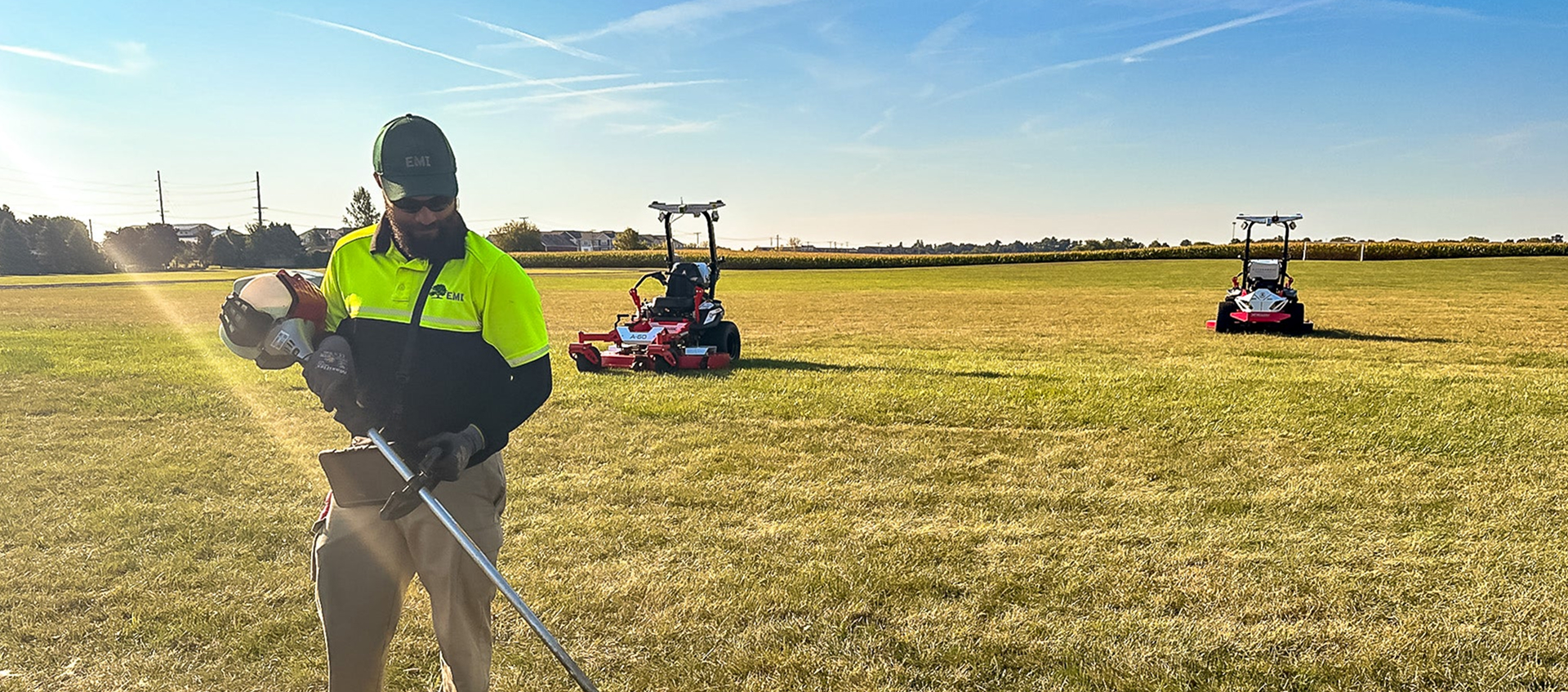EMI Stays Ahead of the Competition

For Environmental Management Inc.’s (EMI) Director of Strategic Initiatives, Greg D., staying ahead of the competition means looking ahead to new technology.
For Environmental Management Inc.’s (EMI) Director of Strategic Initiatives, Greg D., staying ahead of the competition means looking ahead to new technology.
And, he says that RC Mowers’ Autonomous Mowing Robots™ (AMRs) have given the Ohio-based landscaping company the early edge in self-driving mowing equipment.
“For EMI, being an early adopter of new technology and leading the industry is part of our culture,” Greg said. “Sure, we have staffing issues just like many other landscapers across the country, but that wasn’t the catalyst for our purchase. We don’t want to find ourselves reacting to change. We want to be proactive so that we get buy-in from our team and stay ahead of the learning curve.”
“RC Mowers built their AMRs using mowers that have been proven in the market. Many other companies have tried to build their self-driving mowers from the ground up. What RC Mowers has done is take the existing state-of-the-art mowing equipment and turn it into a self-driving mower.”
EMI purchased two RC Mowers AMRs in early 2023 and immediately put them to work on their customers’ green spaces.
“These mowers have been great for us,” he said. “The service has been top-notch, and RC Mowers’ transparency surrounding the new technology has produced an open dialog. We knew the technology was innovative when we purchased it so RC Mowers’ ability to collaborate with us to adopt practical uses has been phenomenal.”
Greg said one of the major selling points he considered when making the decision to go with the RC Mowers AMRs is the ability to build their self-driving mowers using existing technology and logic.
“They’re not trying to reinvent the wheel,” Greg said. “RC Mowers built their AMRs using mowers that have been proven in the market. Many other companies have tried to build their self-driving mowers from the ground up. What RC Mowers has done is take the existing state-of-the-art mowing equipment and turn it into a self-driving mower.”
“The AMR is not a technology that is going to replace jobs. It supplements our gaps. We still have the need for skilled labor, and the AMRs can mow so our team members have the time and ability to do the detail work they’re good at.”
Greg said the potential of the AMRs to improve EMI’s return on investment (ROI) is already being felt.
“This industry has had labor shortages for years,” he said. “This is nothing new. But the AMR is not a technology that is going to replace jobs. It supplements our gaps. We still have the need for skilled labor, and the AMRs can mow so our team members have the time and ability to do the detail work they’re good at.”
Greg said customers appreciate that the AMRs can flawlessly mow their lawns without mistakes allowing the human team members to pay more attention to issues like bee infestations or dying plants.
He also added that the company’s investment in the AMRs is already showing profitability.
“The mowers will be paid off in three years, but we’re already seeing improvements in longevity,” the strategic manager said. “Because they won’t run into or over things, they aren’t getting beaten up in the field, and we anticipate this will make them last longer. With our other equipment, we have to retire it after three or four years, but these mowers will last five or six because they aren’t run hard or accidentally wrecked.”
Greg recommended that any company considering RC Mowers AMRs should appoint one person to be the advocate and learn the machines’ existing and future abilities.
“Tasking someone to learn the machines and abilities has helped EMI remove any barriers that we might have experienced,” he said. “Find a champion on your staff and put them in charge of your AMRs. This will help you find the best ways to adopt this technology to your team, your clients and your business.”
